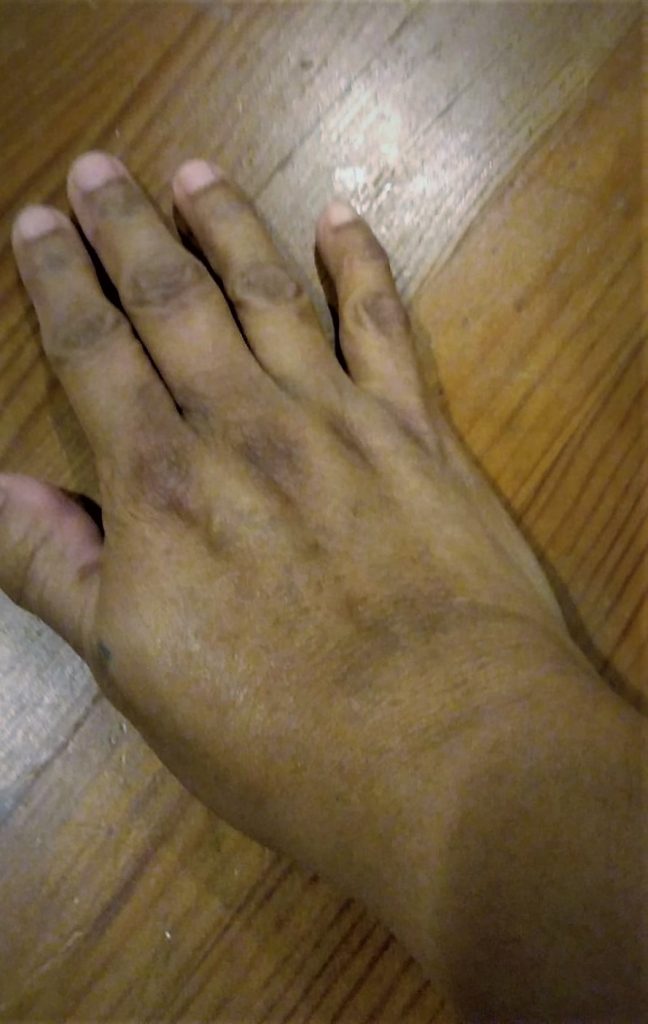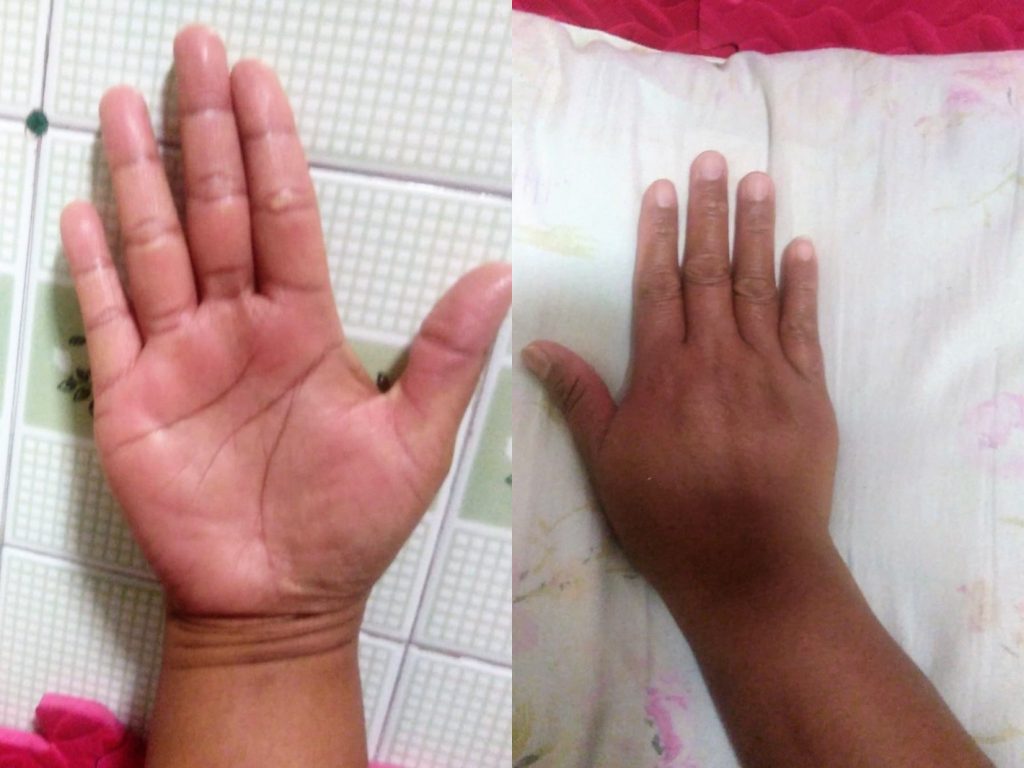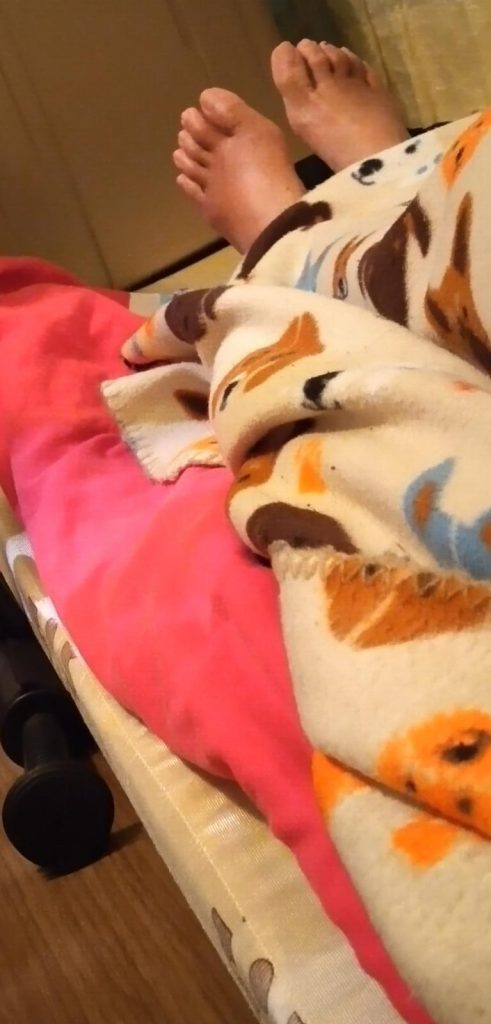Original: 【照顧者的抗疫日常(一)】移工姐姐:僱傭關係、種族分野之下的照顧工作 / Days and Nights of Family Carers in the Epidemic—Migrant Domestic Workers: Care Work, Employment and Race (I), published in 香港獨立媒體 (InMediaHK)
Translators: Grassmedia Action, P, yehua
If you would like to be involved in our translation work, please get in touch here.
Series table of contents:
FOREWORD
PART ONE: Care work, employment and race
PART TWO: Twenty years as a migrant worker mother
PART THREE: Caring for children with special needs
Editors’ note: As the epidemic rages on, and people self-isolate in their homes, migrant domestic workers (MDWs) have been forced to work additional hours and under increasingly demanding conditions. This piece explores the stories of three MDWs as they navigate the interpersonal aspects of domestic labour and the structures that underlie it.
The authors from migrants solidarity committee autonomous 8a connect and walk with the grassroots. They endeavour to fight for the genuine autonomy of peoples with mutual respect from the root, where participating in democracy in their own capacities becomes possible. They devote themselves to the mass of migrant workers and their movement through connecting with and getting to know the grassroots. They continue to take part in migrant workers’ movements from different perspectives, distributing information and sharing understanding among the public.
As we approach the topic of family carers, we cannot afford to neglect the 300,000 migrant domestic workers (MDWs) in Hong Kong. Unfortunately, their stories are often also the toughest to tell. Let’s start with the employment relationship. MDWs and local workers face similar problems: Employers do not provide them with any face masks, so they have to source some by themselves. However, MDWs are workers who are legally required to live in their employers’ houses. Since some employers worry MDWs will bring the virus home—and with the Labour Department encouraging MDWs to stay at home on their statutory rest days—many of them are not allowed to have a day off, even if it happens only once a week. Some were even fired because they fought for their rest days.
Underlying this is the discrimination of MDWs on both a social and policy level. But it goes beyond the narrative of “heartless employers refusing to safeguard workers’ occupational health and safety,” as this is also directly correlated to how financially well-off these employers are. Wealthy employers can easily afford to buy protective gear, and they wouldn’t mind buying groceries from expensive chain supermarkets. But many of those hiring MDWs are just ordinary working-class families who, despite queuing outside pharmacies and trying their best to purchase masks online, could not even procure enough for themselves.
When grassroots workers are laid off during an economic downturn—as many now are—their whole family’s livelihood is at stake. But when this happens to MDWs, the stakes are even higher: They often have to pay back a considerable debt in the form of agency fees (MDWs must find a job via agencies in order to work in Hong Kong; agencies exploit this by overcharging MDWs in agency fees and rake in profits) and face deportation when they become unemployed for more than two weeks. We have not even asked the all-important question: Who would want to work so far afield if they can find a proper job back home?
Onto care work. Compared to our mothers and other carers, MDWs are at least paid, but their working conditions are worse than that of local domestic workers. The current minimum allowable wage for MDWs is HK$4,630 per month, and they are not covered by the statutory minimum wage of HK$37.5/hr. Moreover, MDWs are compelled by law to live with their employers, which means they don’t have definite working hours. Many of the MDWs we had interviewed mentioned the additional stress they are experiencing, now that their employers are mostly working at home due to the coronavirus outbreak. (Imagine having to live with your boss and be on-call 24 hours a day.)
In some families, the MDW is not the only carer; Ris, one of the MDWs we spoke to, often “partners” with the female employers in the house. So, what is the division and negotiation of care labour between two or more carers? How much bargaining power do MDWs have? The depreciation of and discrimination against the value of domestic work, gender and race all play an indubitable role in these questions.
For every family carer, myriad and at times contradictory forms of emotional labour interweave to knit together the fabric of everyday life.
The relationship between carers and those being taken care of is even more delicate. “We are like a family,” so say the families who have a good relationship with their MDWs. Indeed, children can be dependent, behave in an affectionate way, have arrogant mannerisms, and make you feel touched; similarly, the elderly can be caring, fussy, ill-tempered and be good company. For every family carer, myriad and at times contradictory forms of emotional labour therefore interweave to knit together the fabric of everyday life. Yet, they are not the real family of MDWs, because this relationship—distant or close—is going to end someday, when the MDWs leave the city and return to their own homes. And when they do, they will have to nurse an emotional void formed as a result of leaving behind such deep-rooted attachments (however fraught they may be) while trying their best to make up for lost time with their own families. For some, this can be as long as 10 years. Even if they have settled in Hong Kong and their children have built their own families, MDWs have no rights to stay in Hong Kong (they are not eligible to apply for the right of abode in the city, however long they have worked here for). Plus, the power imbalance always exists even between a worker and the friendliest of employers.
In the end, it is always the same story: the lack of public care service, gendered division of labour, depreciation of domestic and care work, transfer of benefits between the states that export and import MDWs, and the institutional and societal discrimination against migrant workers. The following bitter experiences arise out of these intersecting structures and forms of violence. But is that all? Can individual encounters transcend these chains? Can changes be effected by collective resistance? Amidst persistent countercurrents of struggle, let us hear their stories.
Hands scalded working for a wealthy family
Ris (alias), from the Philippines, works for a western family in the Mid-Levels. Recently the family welcomed a new member: a 6-month-old baby girl, Amanda (alias). The female employer is taking maternity leave, so she looks after the baby during day time. The family hires a post-natal care worker (Ah-ma) for the night to free up time for the mother for some precious, uninterrupted rest. But as the family is facing the prospect of raising a newborn during the Covid-19 epidemic, Ris has become the “frontline” of the family’s defence against the virus, even though she is not primarily responsible for the baby’s care.
Disinfecting the house inside-out twice a day is just the basics, with special attention to electronic switches and every corner, big or small. But even that’s not enough. Since the daughter is her first baby, the female employer remains very worried and demands that Ris wipe everything down using boiling water. The blistering heat is intolerable, so Ris once tried to use warm water instead but was immediately told to stop. Ris ultimately obliged, and even with gloves on, both of her hands have become scalded and scarred. Even though she understands the employer’s concerns, Ris is still frustrated: “It’s too fussy!”
As usual, Ris needs to shop for cooking. Fearing the virus, her employer asked her not to go to the wet market and to go to the supermarket five minutes’ walk away from home instead. Meanwhile, her employer wants fresh ingredients which you can’t always buy from the supermarket. Under the epidemic, the employer is especially keen on having a healthy and balanced diet, making it even more difficult for Ris to design the menus and prepare the meals. This has become her most tiring work apart from cleaning.
Except for the occasional walk at the Peak, both of Ris’ employers now stay at home for almost the whole day. “The stress can be felt all through the house,” Ris said. The pressure comes most directly from the need to reschedule the house cleaning. Before, she has her own rhythm: living room, bedrooms, kitchen… one by one, and she’s quick. But now, in addition to the heavier workload, her male employer often works and has his meetings in the dining room, so Ris has to wait until he finishes to start cleaning. Another source of pressure is her employers’ emotions. Ris’ male employer works in finance and “you can tell from his face,” said Ris, that the recession is taking a toll on him. Ris has to be alert all the time to avoid making mistakes and upsetting him. Thus, even after she has finished all the work, she will still find some things to do just to save herself from setting off her employer’s short temper. She said sadly that she can only rest when she is shopping for groceries.
Nevertheless, Ris still feels she is lucky enough to get enough masks and sanitiser from the employer, and can still take her days off. And even though both her employers are working at home, she still has her own room and is usually left to her own devices in the kitchen. Knowing many other MDWs have to buy masks themselves or haven’t taken their days-off for months (Note: the Labour Department recently encouraged MDWs to stay at home during their rest days), she is worried about the working and living conditions of other migrant sisters under the epidemic.

Po Po: The authority of housekeeping
Ana (alias) is an Indonesian migrant worker who has just finished her 8-year contract with her previous employer. 8 years ago, her employer’s son was only 2 years old and the daughter was not even born. Now, the daughter is attending her second year in primary school and she no longer needs a helper. Ana still misses them, especially the girl. “She is chubby just like me.” Even after changing employers, Ana is still in contact with the family she used to work for, but she hasn’t visited them for a while since the outbreak of Covid-19.
It is taking some time for Ana and the grandma (po po) she is caring for in her new employers’ family to get used to each others’ ways. Po po has her own way of housekeeping and always asks Ana to follow her lead. For example, living in Choi Hung, Ana would naturally do grocery shopping in the market downstairs. However, po po asks her to go to Sham Shui Po because groceries are cheaper there. With the ongoing epidemic, travelling frequently by bus or MTR increases her risk of being infected, but Ana has no choice but to go there once a week, as otherwise po po will chastise her for wasting money. Po po used to go for dim sum (yum cha) once a week, but now she always stays at home because of the pandemic. More conflicts arise between her and Ana as a result, and the kitchen has become the “battlefield”: Po po will come in and order Ana around whenever she is preparing the meals. Sometimes when Ana takes a break in the living room after cleaning, po po will scold her for slacking off. It is hard for Ana to get along with her.
To better guard against the epidemic, Ana disinfects the flat twice a day. The bleach has cracked her skin on both hands. The routine care workload is also heavy. After giving po po a massage, she has to then wait for her to finish watching TV before she can rest, which is often at midnight. Besides taking care of po po, Ana also needs to cook dinner for her employer and his two brothers’ families—who live next door—every Saturday night and can only go to bed at 2 a.m. “I don’t have enough rest or sleep, so I easily feel ill. And the virus is out there…” Poor health due to such heavy workload has become a concern of many migrant domestic workers under the epidemic.

Another daughter
It has been four and a half years since the daughter of Nina’s (alias) employer was born. As schools and extracurricular classes have now been suspended, Nina keeps the girl company at home. However, she needs to be extra careful while cleaning to prevent the child from inhaling fumes from the alcohol and bleach disinfectant, so she usually cleans the flat only when the girl has fallen asleep or left home with her parents. The family goes hiking sometimes, but for the most part, the couple works at home, which increases Nina’s workload. While she only needs to prepare breakfast and dinner before, she now has to make lunch for them as well. Meanwhile, since she doesn’t need to wait for her employer from work, dinner starts earlier, and she can also take an earlier rest.

Last month, due to the widespread concern of mask shortages, Nina’s employer did not give her any masks and refused to let her take her day off. She had to ask her husband in Indonesia to send her some masks in order to convince her employer to allow her to have her holidays. At the same time, the Indonesian Migrant Workers’ Union (IMWU)—of which Ana and Nina are both members—has also started to collect masks and distribute them to migrant workers who do not get them from their employers, as well as local grassroots cleaners, security guards and the elderly.
At the mention of her employer’s daughter, Nina’s excitement was apparent as she beamed under her mask. The girl shares all her food and snacks with Nina. When the family takes her out for dessert (tong sui), she always asks to reserve one for jeje (Note: jeje is a Cantonese term used by Hong Kong families to refer to MDWs). Nina has two daughters herself, one is now 13 years old and the other is 10. Every time she video-calls her daughters, the girl would look green with jealousy, but her two daughters like this “baby sister” very much. Nina recalls the time when the girl was born and how the female employer taught her to pat the baby’s back to help her burp. But as there is no such practice in Indonesia, Nina was very nervous and worried that she would hurt the baby. In fact, Nina’s younger daughter only turned one when she came to Hong Kong eight years ago. She had not even looked after her for long. Perhaps that’s why when she mentioned her employer’s daughter, she always said, “It’s just like taking care of my own daughter.”





